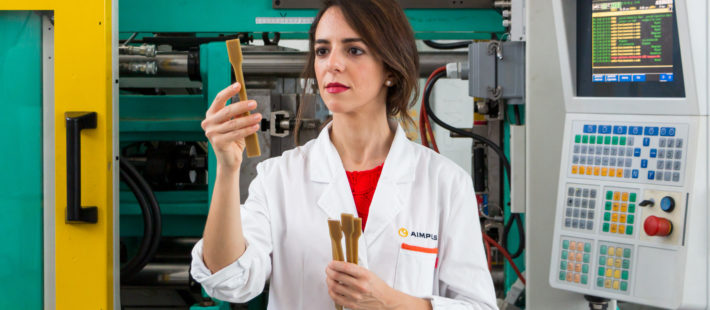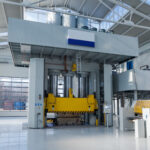The European RECOTRANS project obtains its first three demo samples thanks to a new manufacturing process using microwaves and lightweight multi-materials to manufacture more sustainable vehicles. The project, led by AIMPLAS, the Plastics Technology Centre, will make it possible to produce lighter and, therefore, less polluting vehicles without increasing the cost. A cost and consumption reduction has been confirmed in the manufacture of these three prototypes, as has the feasibility of recycling and processing the resulting material.
Developing technologies to reduce vehicles weight without increasing their cost
Means of transport in Europe are responsible for about a quarter of all greenhouse gas emissions. One of the measures for combating environmental pollution is reducing the weight of vehicles. This not only helps reduce fuel consumption, but also improves vehicle performance, reduces the load on the suspension and braking systems and opens the door to introducing electric vehicles, where vehicle range is still a critical point.
To achieve these results, AIMPLAS is coordinating the RECOTRANS project, whose main objective is to develop and design technologies and solutions that reduce the weight of vehicles without increasing their cost. Multi-material thermoplastic components are therefore now being developed. They not only help make the parts lighter, but also allow for more complex designs. Then, microwave curing is also used in the manufacturing process to reduce manufacturing times and energy consumption, and metal-polymer hybrid welding is used to reduce the consumption of raw materials and improve the standardization and automation of the production process. And it is all watched over by a smart production line monitoring system.
The first demo samples
The result of this innovative system will be three demo samples from the automotive, truck and rail sectors: specifically, the door of a car, the rear suspension of a truck cab and the interior panel of a train coach. Progress made in the project’s 30th month shows that, following the manufacture of the first prototypes, a significant cost and energy consumption reduction was achieved compared to conventional composites. It also provides a feasible scenario for recycling and the processing of recycled thermoplastic composites.
 The RECOTRANS project, which started in October 2017 and will end in October 2021, has received funding from the European Union within the framework of the programme H2020. A total of 13 partners from seven countries take part in it. The developments carried out in this project will be applied to other sectors as well.
The RECOTRANS project, which started in October 2017 and will end in October 2021, has received funding from the European Union within the framework of the programme H2020. A total of 13 partners from seven countries take part in it. The developments carried out in this project will be applied to other sectors as well.












